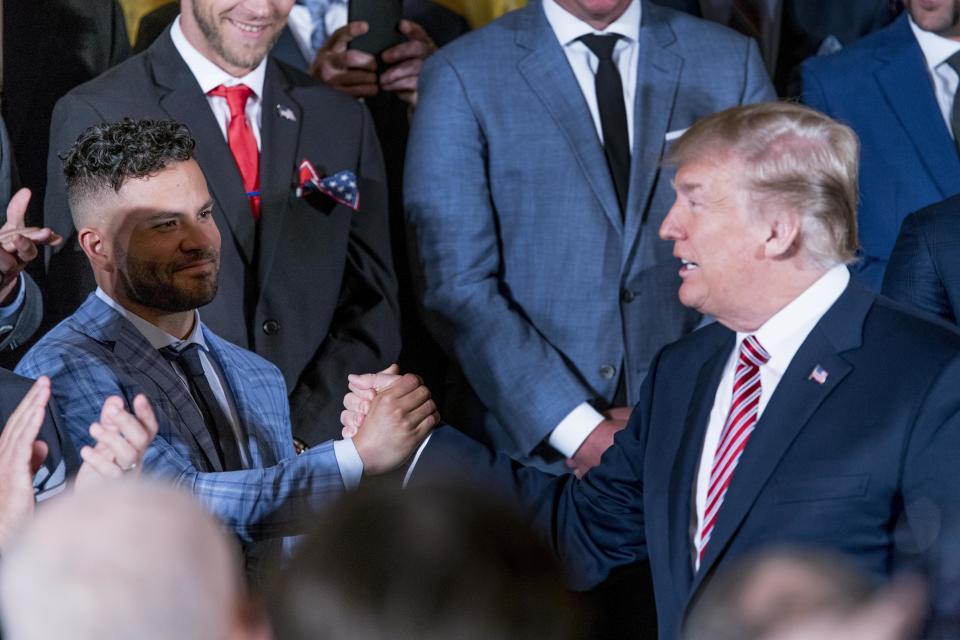President Donald Trump just made it harder for baseball teams to make trades
The Houston Astros won the 2017 World Series after going all-in to acquire Justin Verlander. If they hope to repeat in 2018, the team could hesitate on pulling the trigger on another blockbuster move.
That’s all due to a change in the new tax law, Major League Baseball teams may be taxed more when they acquire big contracts in trades. President Donald Trump signed off on the law, according to the New York Times.
As the Times explains, the law previously in place allowed businesses to swap “like-kind property” tax-free. This mostly applied to farmers, who could swap machines without being taxed. It also, however, applied to baseball contracts.
That’s no longer the case. Under the new law, “like-kind property” will be limited to real estate. That could wind up having a significant impact on how MLB teams operate. Suddenly, if a team makes a trade for a player with a big contract — like Verlander — they’ll be taxed on the value of that deal.
The Times spoke to MLB’s chief legal officer Daniel R. Halem, who said the league hopes the impact the new law will have on baseball was “inadvertent.” He added that the league would lobby to change it back.
Value plays a big role in how teams will be taxed, and the Times lays out the complications involved with trying to apply that part of the law to sports teams using Verlander as an example.
But what, exactly, was that value? Was it the size of his contract? Mr. Verlander earned $28 million last year, while the players traded for him drew minor-league salaries. Was it the additional wins he brought to the team? Statisticians estimate Mr. Verlander gave the Astros nearly two more wins last season, a value that, depending on the statistician, could reach $20 million. Or was some calculation of the total future value Mr. Verlander will bring to the team, minus the total future value it gave up in the prospects it traded away — and possibly adjusted for the amount the team will have to pay Mr. Verlander?
Complicating matters further is that teams value players differently, and one player might help a certain team far more than another team. A struggling club with a surplus of starting pitchers might trade one to a playoff contender in desperate need of one, in exchange for position players who could improve a struggling lineup. In that case, both teams could, reasonably, be considered to have gained value in the trade, and thus would owe taxes on it.
Reading that, it’s easy to see how complicated the new tax law can make things for baseball. There are a lot of different ways to interpret player value.
At this point, everyone involved is still trying to figure out what happens next. If the new law applies to baseball, Halem would like those involved to be more specific on how this is going to work. The Times could not get the IRS or Treasury officials to comment on the changes.
As it stands now, either the new law will drastically alter the way teams operate, or government officials will say the change was unintentional and everything will remain status quo. So … no pressure there.

– – – – – – –
Chris Cwik is a writer for Yahoo Sports. Have a tip? Email him at christophercwik@yahoo.com or follow him on Twitter! Follow @Chris_Cwik
More from Yahoo Sports:
• Minor-league baseball players may be exempt from federal labor laws soon
• Brewers awesome shot-for-shot remake of ‘Sandlot’ scene features surprise cameo
• Rangers pitcher gets revenge on bull that startled him: ‘I killed him and I ate him’
• Twins lose shortstop Jorge Polanco for 80 games after positive steroid test

